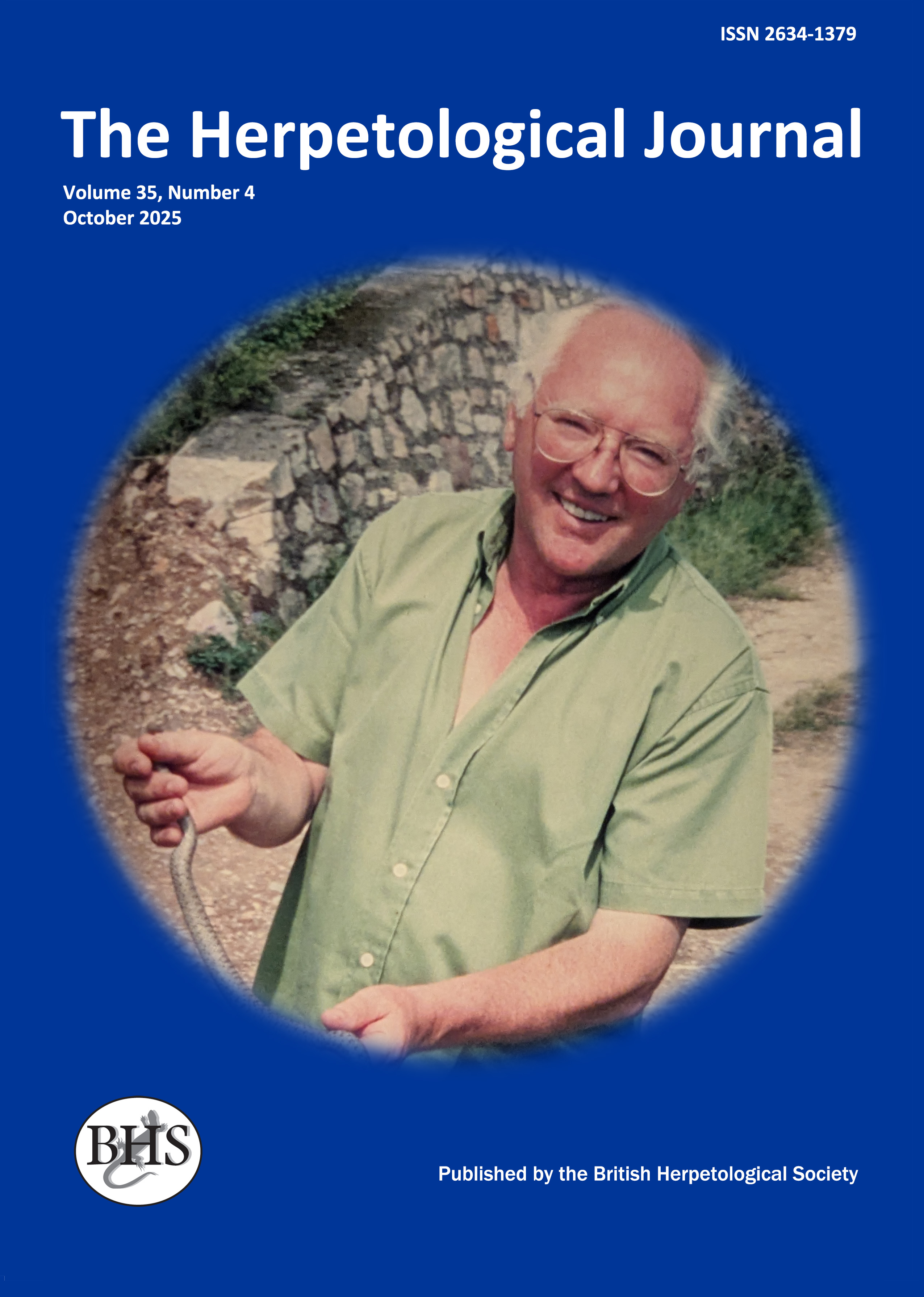
The Herpetological Journal
The Herpetological Journal is the Society's prestigious quarterly scientific journal. Articles are listed in Biological Abstracts, Current Awareness in Biological Sciences,Current Contents, Science Citation Index, and Zoological Record.
ISSN 0268-0130
2023 Impact Factor for the Herpetological Journal is 1.1, with the Journal sitting just below Quartile 2 in Zoology, at percentile 46.9
pdf 03. How did the toad get over the sea to Skye? Tracing the colonisation of Scottish inshore islands by common toads (Bufo bufo)
1481 downloads
Open Access
DOI: https://doi.org/10.33256/31.4.204213
pp. 204-213
Authors: David O'Brien, Jeanette Hall, Katie O’Brien, Donal Smith, Stewart Angus, Rohan Vishwas Joglekar & Robert Jehle
Abstract: Processes of island colonisation have long been of interest to biologists. Colonisation events themselves are rarely observed, but the processes involved may be inferred using genetic approaches. We investigated possible means of island colonisation by common toads (Bufo bufo) in western Scotland (the Isle of Skye and five neighbouring small islands), using evidence derived from nuclear microsatellites and mitochondrial (mt) DNA. Levels of microsatellite allelic richness for populations on Skye were high and comparable to adjacent mainland populations, but lower for populations on small islands. Pairwise measures of genetic distances between populations and a clustering algorithm were both suggestive of frequent gene flow between Skye and the mainland. For small islands the levels of genetic differentiation were higher, implying stronger isolation and no evidence for inbreeding. The distribution of mtDNA haplotypes broadly mirrored the genetic structure revealed by microsatellites. Reconciled with existing palaeoclimatological evidence, since the last glaciation, our findings rule out the possibility that the B. bufo populations stem from glacial refugia, or that recent anthropogenic transfer of toads is responsible for their current distribution. The most parsimonious explanation of our data is that the studied inshore islands have been repeatedly colonised via rafting from the mainland or neighbouring islands. This may give us insights into the processes likely to take place when ice sheets retreat poleward as a result of climate change. It also has implications for the colonisation of
both native and invasive non-native species, and hence the biosecurity of island refugia.
Keywords: Island biogeography, glaciation, amphibians, rafting

